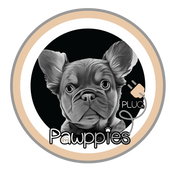All About Toy Poodles: The Ultimate Guide
Toy Poodles are one of the most beloved and popular dog breeds, known for their intelligence, elegance, and playful personality. Whether you’re a current owner or considering adding a Toy Poodle to your family, this guide covers everything you need to know about these delightful dogs.
History and Origin
The Poodle is believed to have originated in Germany, where it was known as the "Pudel," meaning "to splash in water." However, it was in France that the breed gained its fame and recognition. The Toy Poodle was bred down from the Standard Poodle to create a smaller companion dog for nobility and royalty. They quickly became favorites for their charming looks and intelligent nature.
Appearance
Toy Poodles are the smallest variety of Poodles, typically weighing between 4-6 pounds and standing about 10 inches tall at the shoulder. They have a distinctive curly coat that can come in a variety of colors, including white, black, apricot, red, silver, and more. Their elegant, graceful appearance, coupled with their expressive eyes and proud stance, makes them highly appealing.
Temperament
Toy Poodles are known for their lively and affectionate nature. They are incredibly intelligent and are often regarded as one of the smartest dog breeds. This intelligence makes them highly trainable and quick learners, excelling in obedience and agility activities. Toy Poodles are also very social and thrive on human interaction, making them excellent family pets. They get along well with children and other pets when properly socialized.
Health and Care
Toy Poodles are generally healthy dogs, but like all breeds, they can be prone to certain health conditions. Common health issues include:
- Progressive Retinal Atrophy (PRA): An eye disorder that can lead to blindness.
- Patellar Luxation: A condition where the knee cap dislocates.
- Addison’s Disease: A disorder affecting the adrenal glands.
- Dental Issues: Due to their small size, Toy Poodles are prone to dental problems, so regular dental care is essential.
Regular vet check-ups, a balanced diet, and proper exercise are crucial for maintaining their health. Their curly coat requires regular grooming to prevent matting. Many owners opt for professional grooming every 4-6 weeks.
Training and Exercise
Toy Poodles are energetic and require regular exercise to keep them happy and healthy. Daily walks, playtime, and mental stimulation are important. Due to their intelligence, they enjoy learning new tricks and participating in dog sports like agility and obedience competitions. Positive reinforcement training methods work best with Toy Poodles, as they are sensitive and respond well to praise and rewards.
Grooming
Toy Poodles require regular grooming due to their dense, curly coat. Their coat can be styled in various ways, with popular cuts including the “Puppy Clip” and the “Continental Clip.” Regular brushing is essential to prevent tangles and mats. Additionally, their ears should be checked and cleaned regularly to prevent infections, and their nails should be trimmed to avoid overgrowth.
Nutrition
A balanced diet is essential for maintaining the health and well-being of Toy Poodles. High-quality commercial dog food or a carefully prepared homemade diet, as recommended by a veterinarian, will provide the necessary nutrients. Portion control is important to prevent obesity, a common issue in small breeds.
Conclusion
Toy Poodles are delightful companions, known for their intelligence, elegance, and affectionate nature. They make wonderful family pets and are well-suited for various living situations, from apartments to houses with yards. With proper care, training, and attention, Toy Poodles can thrive and bring joy to their owners for many years.
Whether you’re a seasoned Toy Poodle owner or considering bringing one into your home, these charming dogs are sure to capture your heart with their playful spirit and loving nature.

Leave a comment